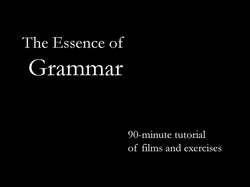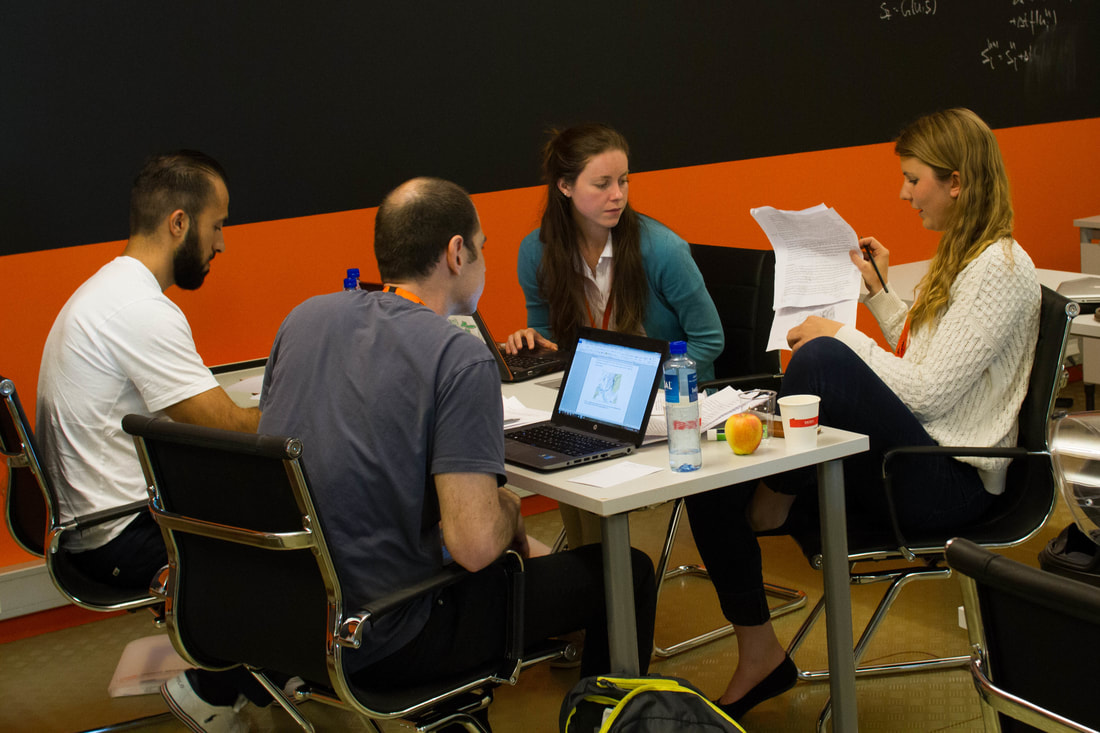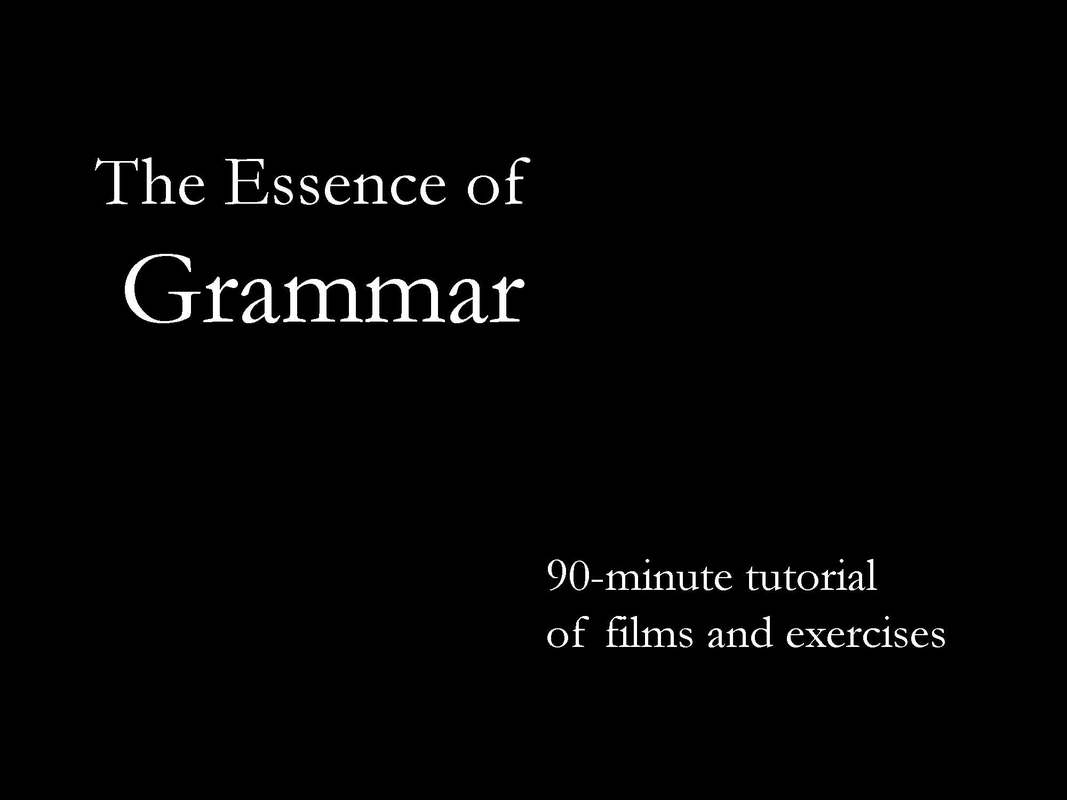Why Our Engineering and Science Students
Struggle With Writing
Michael Alley
Updated November 2022
Updated November 2022
|
Relative to students from other colleges, engineering and science students entering the university have high verbal ACT and SAT scores. Still, many engineering and science students struggle with their writing. Why? One major hurdle is that scientific writing is difficult and poses several challenges to our students. A second major hurdle is that while engineering and science students have relatively high verbal scores entering the university, most either have not learned or have the forgotten the grammar needed to understand effective writing strategies in engineering and science. This article discusses these two hurdles and what we as faculty can do to help students overcome them.
As stated, one major hurdle for our students is that scientific writing is difficult. For one thing, our students often do not understand their audiences: who those audiences are, what they know, and why they are reading. Drawing from their writing experiences in middle school and high school, our students often assume that the reader knows more than they do about their projects. What students do not appreciate is how often they are the knowledge experts in performing an experiment or creating a design and how hard that they must work to communicate the experiment or design to others, even those with much experience in the field. To counter this mistaken assumption, we as faculty should show students examples in which other students have taken jumps that we cannot follow. By confessing our own lack of understanding in such cases, we can make the students sensitive to what their readers do not know. In addition to our students not knowing their audiences, our students struggle with precision at the sentence level. Because students are new to the discipline, they are learning the boundaries of what is precise. In that learning stage, they often miss the target. What distinguishes the best young writers is how clear they are with their imprecision. In other words, if the sentence is clear, you as a reader can readily identify the imprecision. However, when students are both imprecise and unclear, readers have little chance to offer suggestions. In professional situations, managers and colleagues become frustrated and often rewrite the emails or reports themselves. A suggestion here is to let the students know up front that they will suffer imprecision on their first few documents, but that imprecision is expected. Not acceptable, though, is murky writing, which arises from not following the principle of "one idea, one sentence" [4]. Murky writing also arises from choosing a long word such as facilitate when a shorter word (help or foster) carries the same precision. Yet a third struggle that our students have with scientific writing is that the style of scientific writing has aspects that the students have not encountered in their education. Writing in sections, incorporating equations, designing and incorporating illustrations, and adherence to specific formats--these are just some aspects in scientific writing with which students must wrestle. My suggestion on handling these hurdles is to provide the students with templates that include just-in-time advice on these new aspects. 
|

Even though the difficulty of scientific writing poses a high hurdle for our students, perhaps a higher hurdle is that our students lack an important tool to learn scientific writing: grammar.
Around 1970, a flawed educational movement in the United States persuaded many schools to stop teaching grammar [1-3]. The result has been that many engineers and scientists in the last two generations lack the confidence to state with certainty whether a group of words is even a sentence. Because sentences are the fundamental unit of expression in scientific writing, not knowing with certainty whether a group of words is a sentence leads to major errors such as fragments and run-ons. Worse yet, these engineers and scientists lack the vocabulary to discuss or analyze writing Without knowing grammar, students cannot learn the most effective writing strategies for avoiding ambiguities, connecting ideas in paragraphs, and emphasizing important ideas at the sentence level. Even for those lucky students who were taught grammar, most learned the topic in a vacuum in grade school or middle school. In other words, the students learned potentially valuable knowledge, but unless they studied a foreign language, the students had no occasion to apply that knowledge. The result is that many students are rusty with the definitions. Some terms such as "dependent clause" are distant, and other terms such as "infinitive phrase" have been long forgotten. Over the past few semesters, I have tested hundreds of engineering students and found that one-third often write a run-on when using the adverb however. Anyone who understands what a sentence is would not make this mistake. Such a mistake in an email could sink a job application. In addition, my tests have found that most engineers struggle to identify the subject of a sentence that begins with a phrase. This lack of knowledge becomes important when learning strategies for avoiding ambiguities. For instance, one such strategy calls for placing a comma after an introductory phrase or clause. However, if students do not know where the introductory phrase or clause ends and the main part of the sentence, that strategy is not understood. Another strategy that depends on understanding grammar is learning different sentence openers to make effective connections between ideas. Still another is to achieve proper emphasis by moving important detail to the beginning or end of a sentence. Such strategies falter with students who do not know grammar, because such students often write only two or three sentence patterns that they have are confident using. Asking such students to begin the sentence with an infinitive phrase, participial phrase, or dependent clause goes beyond their understanding. The advice to address this challenge of students not knowing or remembering grammar is to teach the essence of grammar just as the students begin to study scientific writing. With this knowledge, not only are the students in a position to learn effective strategies for their own writing, but they are also in position to provide concrete comments on the writings of their colleagues. References
Michael Alley is a teaching professor in the College of Engineering at Pennsylvania State University. The author of The Craft of Scientific Writing (Springer, 2018), he has taught writing courses and workshops to engineers and scientists at more than 100 universities, laboratories, agencies, and companies in sixteen countries spanning four continents. The images shown arise from writing workshops that he has taught. |





